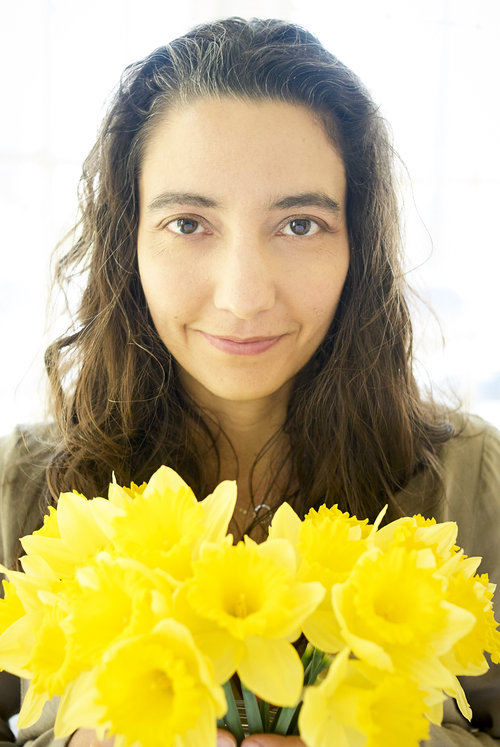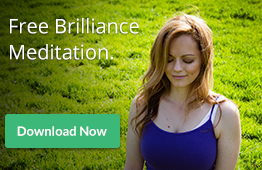 I am absolutely delighted to be debuting my Profiles in Brilliance blog today with an interview I had with my long-time student and recent graduate of the Brilliance Coaching Academy, Sharna Fabiano. An internationally recognized specialist in Argentine Tango, Sharna has an extensive list of accomplishments and accolades in the dance world. But that’s just the tip of the iceberg as Sharna also creatively pursues her passions in the realm of theater, and visual art, as well as in the roles of teacher, coach, and facilitator. I’ve had the great pleasure of working with Sharna both in my yoga teacher training program and in my coach certification program. What a gift!
I am absolutely delighted to be debuting my Profiles in Brilliance blog today with an interview I had with my long-time student and recent graduate of the Brilliance Coaching Academy, Sharna Fabiano. An internationally recognized specialist in Argentine Tango, Sharna has an extensive list of accomplishments and accolades in the dance world. But that’s just the tip of the iceberg as Sharna also creatively pursues her passions in the realm of theater, and visual art, as well as in the roles of teacher, coach, and facilitator. I’ve had the great pleasure of working with Sharna both in my yoga teacher training program and in my coach certification program. What a gift!
Sharna has a beautifully calm and elegant presence that can’t help but shift the whole group into a more intentional space. She just has that way about her. Her thoughtful insights and questions in our work challenged me to go deeper, and she truly was and continues to be a shining example of brilliance in action. The more I get to know her, the more I am repeatedly impressed with the level of intelligence, intuition, empathy, and reverence she brings to her work and to everything she does.
I was thrilled to get a chance to sit down with Sharna to hear more about her experiences as a professional coach post-training and to hear her reflections on our time together in the Brilliance Coaching Academy. After reading her responses to my questions below, I’m sure you’ll become a fast fan of hers too!
AL: Brilliance can seem like an esoteric concept at first. What does it mean to you? How do you root into it?
SF: I have to admit that word didn’t initially resonate with me, but I had the same struggle with the word “heart,” back when I studied yoga with you, and I was greatly helped through that by doing some research and giving myself new associations with that word. What I learned about the neurological system of the heart blew my mind and is now a cornerstone of my meditation practice. So, a similar thing happened with Brilliance, I think. As I learned what it meant for you, and worked through the materials of the training, I formed a definition for myself. For me, Brilliance is the eternal, ever-giving, ever-available potential within us and flowing through our hearts, minds, and living tissues at all times. Whether we’re working on professional, creative, or personal changes in our lives, the source of power is within us. More than that, it IS us. Our task is to learn how to tune the dial to its frequency.
AL: What would you say to people about owning their brilliance if they don’t even feel connected to it as a possibility?
SF: Well, that was definitely me for a long stretch of my life, and I know what it feels like to hear words like this and your mind goes, yeah right, that’s just fluffy CA talk. I live in the real world. I think for me what made it possible to relate to brilliance as a reality was periodic contact with various teachers and books that were so clearly articulating it, and on some deep level not being able to deny that something in me really wanted it to be true, you know, so I learned to have faith in it little by little and then at some point it started to become easier and I had fewer and fewer doubts.
AL: To connect to one’s brilliance, there can often be a need to let go of old ways of being or old beliefs. Can you share something you had to let go of in order to really step into a deeper connection with your brilliance?
SF: I definitely had to let go of the belief that I was flawed and damaged, and that is such a pervasive piece of cultural programming. I mean, I now see it for what it is, but I didn’t always. I actually think that’s one element that makes this coaching method so powerful, that right from the beginning that poisonous, invasive weed is steadily cut back and ultimately uprooted, so that the soil of your body can heal and new growth can begin. It’s astonishing to me now, because I remember a time, not so many years ago, that I truly believed I was flawed and damaged, but I honestly can’t even find those emotional patterns in me anymore. Nothing and no one can trigger that in me, and that feels like a miracle.
AL: In addition to being a coach, you are also a dancer and an artist and overall, a very creative soul. How has the concept of brilliance as we worked with it in the training impacted your relationship with your creativity?
SF: I think the training helped to knit together my spiritual and creative practices, and helped me to claim being an artist as a central part of my identity, one that I had been carrying a shadow of cultural shame around for my entire life.
Now, I really feel that my spiritual practice and my creative practice are two sides of the same coin, and this makes everything simpler and eliminates a lot of questions in my mind around my life path. My identity as an artist feels very normal and easy, regardless of whether I’m earning money from my art or not, or whether I’m acknowledged for it or not. Those things are just much less important now, and letting them go has given me a lot of freedom. The training helped me leap pretty fearlessly into a whole new discipline I’d never tried before, painting, and to conceive of new workshops and retreats that integrate drawing, writing, and dancing with empowerment techniques.
AL: Can you share a technique or concept from our training that really made a significant positive difference in your day to day life? What shifted for you?
SF: Gosh, there are so many that I use all the time, but I think on a day to day basis, for me it is the habit of simply accepting what is without judgment, both in myself and others. In particular I’ve learned to really honor my own emotional responses. This doesn’t mean letting my emotions run the show, it’s more like remaining aware enough to accept whatever is occurring in me without judgment, so I can get underneath it to learn what’s really going on.
If I get mad at my wonderful husband, for example, I really let myself feel the anger internally, I don’t shut it down like I used to, because now I trust that it’s there for a reason, to show me something. So I immediately ask, before I take it out on him, why am I mad? And pretty reliably now, from doing this as a regular practice, I get an answer, and then I can choose what to do. Either yes, ok, it’s appropriate for me to express anger about this in a conscious way, or no, what I really want is help cleaning the bathroom, so I can just ask for that instead and let the anger go. That kind of presence of mind and body makes me feel incredibly free.
AL: In this training, we work on how to take what you’re learning and “make it your own”. Can you share one of the ways you’ve done that in your work?
SF: The training has definitely influenced how I teach dance in general. I ask different kinds of questions because I realize now that most patterns in the body won’t change unless there’s a connection made between belief structures and physicality. I teach partner dance and so it is inherently a very personal thing and often I’m working one on one with students in close proximity. I asked one student of mine why he thought he felt anxious about dancing socially, and he was totally surprised, because no one had ever asked him that, and it had never occurred to him that he could feel differently. We worked with his answer in the style of a coaching process, but with the physicality of dance posture, and it made a huge difference in his balance overall, a change that could never have been made so fast by technical correction alone.
I have also built values identification and self-care material into my tango teacher training program, and designed self-inquiry activities for groups of social dancers that reference challenges specific to the tango community.
AL: You work with groups as well as individuals. What was your experience with the group through the Brilliance Coaching Academy. How did that inform your process of connecting to your brilliance?
SF: The fact that you chose the group specifically and did not simply take anyone who wanted to attend, that’s a very strong choice to make as a facilitator that I don’t think I fully appreciated until we had started and I saw how open and honest we were able to be with one another. That openness allowed me to go very deep into my own process of being coached, both by you and by the others in our practice sessions, and I know from my previous work in physical partnering that there is nothing that will help you understand how to guide better than fully surrendering to being guided yourself. Had I not trusted the cohort so completely, I may not have had that opportunity.
And, in such an amazing way, many of us are still in close touch a year later and have coached each other and kept each other going periodically throughout that time. It’s truly been an unexpected gift that keeps on giving.
AL: What do you think is one of the biggest misconceptions people have about coaching?
SF: Probably that it’s for corporate executives or that it’s really expensive, or that it’s superficial fluff. I mean, I think I thought all of those things before I met you through the yoga world and was introduced to empowerment work through your yoga training. That totally redefined “coaching” for me and I knew it was something I wanted to learn.
AL: Can you share a client success story? What was that like for you as their coach?
SF: I am always amazed and often surprised at how these techniques work their magic in people’s lives. It’s the uniqueness of each situation, I think, that constantly reminds me to be open to anything! I was working with one client on establishing boundaries, first knowing and then expressing what she wanted and especially what she did NOT want. She committed to finding one opportunity in a span of one week to exercise her right to say no. I thought maybe she would turn down a cup of coffee or a phone meeting, but as she was negotiating the process of leaving a job she held at the time, she was asked to return her signing bonus of $5000, and she said no! She had, as it turns out, a very good reason for that no, which was later acknowledged and honored by the company, but had she not had this assignment from our work together, she admits she probably would have just given it back without thinking.
I remember being just blown away by this story, and of course thrilled for her! We joked later that it was great ROI, but honestly, it taught me never to underestimate what may seem at first to be a small idea, and more importantly never to underestimate each individual’s absolute power to change.
AL: If there was just one thing that you would want every client to learn from your offerings, what would it be?
SF: That nothing has to be the way it is. No matter how painful or frustrating, change is always possible, both internal and external. It may not be quick or easy or predictable, but it can happen. That patience is necessary. That all of the answers really are there, and that radical self-acceptance is the way to find them.
AL: What’s next for you?
SF: I’ve cleared a lot of space in my schedule this year to write a book on complementary leadership and followership skills in the work place. These are themes I’ve worked with for twenty years through tango social dance and I feel there is a lot of embodied wisdom there that can be translated into professional interactions. Right now there’s an excess of material on leadership, but from my perspective, it’s incomplete, even dysfunctional, without addressing followership and how the two modes of communicating interface and produce creative dialogue.
AL: How can people get in touch with you to work with you further?
SF: I write frequently on empowerment and on the dynamic of leadership and followership on my blog at www.sharnafabiano.com and always welcome your thoughts and reflections!
A big thank you to Sharna for sharing your reflections with us. You’re a true inspiration to me and so many others.
To learn more about the Brilliance Coaching Academy and how you can apply for the upcoming program beginning in July, click here. Or come join us for a free Open House on April 14th in Santa Monica to get a sample taste of the full training. You’ll also get a chance to speak to past graduates in person and learn about the diversity scholarship program. Please RSVP here as space is limited. Thank you!









